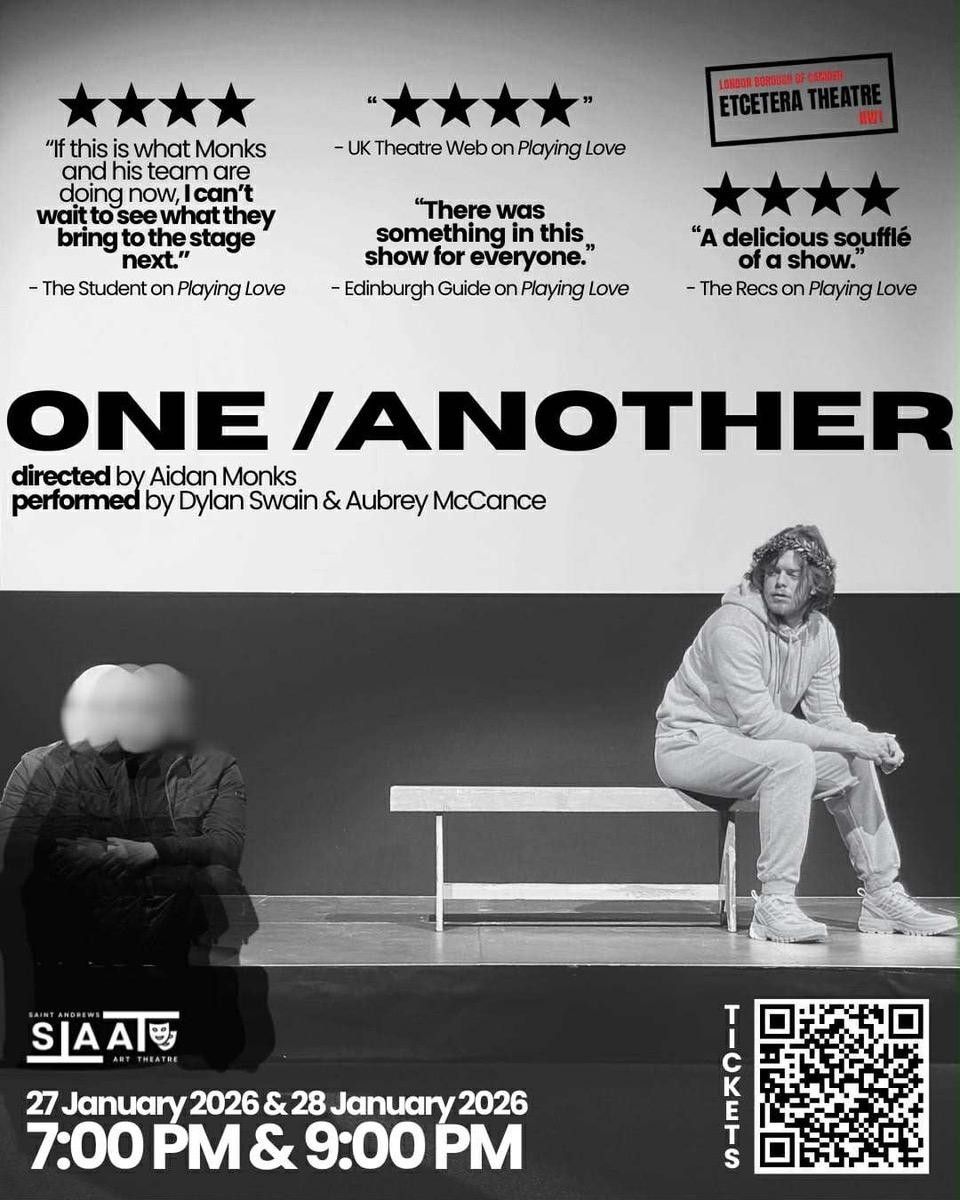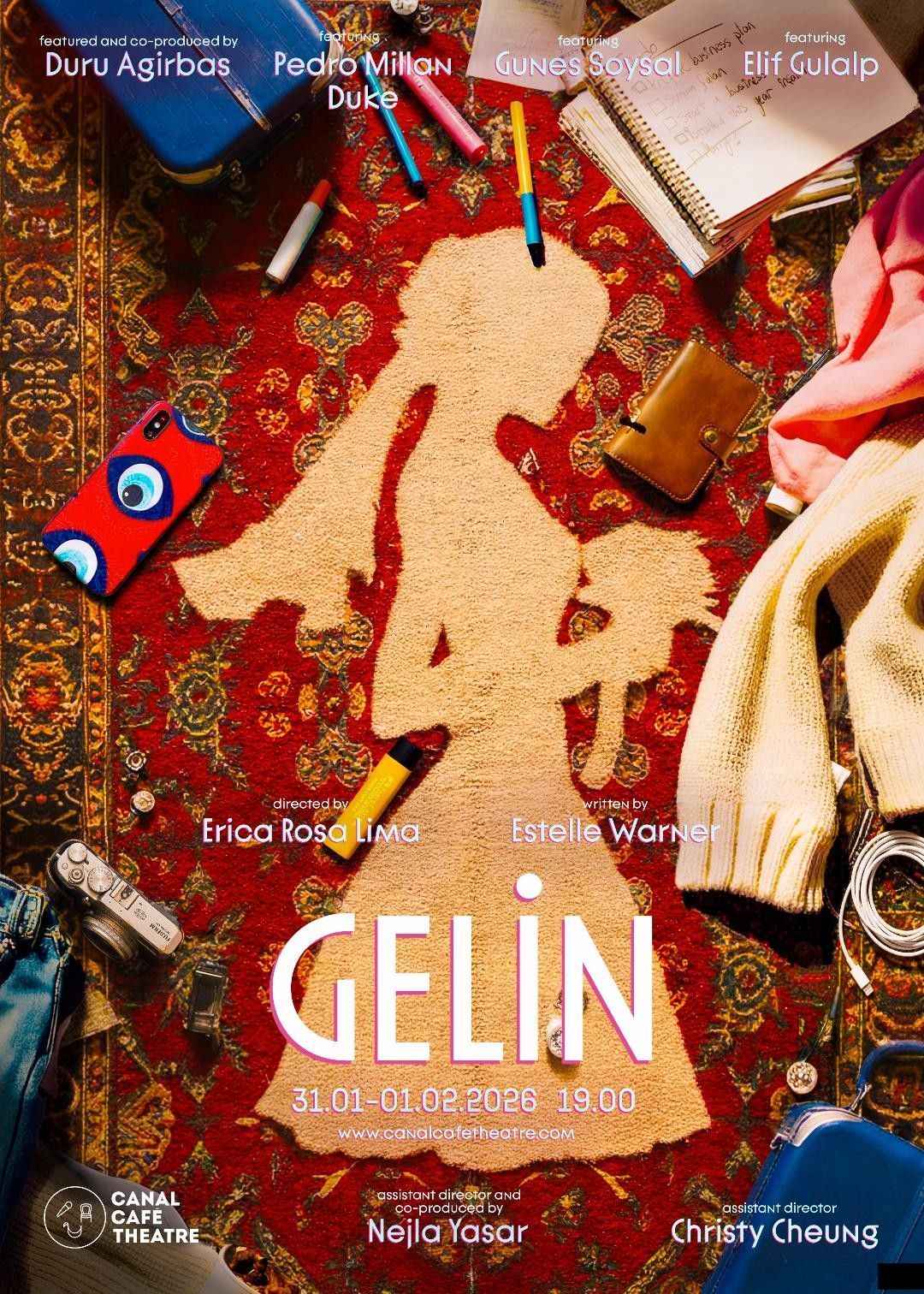REVIEW: THE FABULIST at Charing Cross Theatre 12 August - 21 September 2024
"Commedia dell'arte meets A Midsummer Night's Dream"★★★★★
Something magical is happening under the arches in Charing Cross. With the kind of fantastical imagination and earnest romanticism that made Baz Luhrmann's Moulin Rouge so singular, The Fabulist by James P. Farwell takes us from the battlefields of ancient Anatolia, on a 1920s movie set, to an astral patrician household, where the repression of Mussolini's Italy is dancing across magic, science, religion, and love.
This grand ambition is matched by the grand scope across time and space: the show itself is based upon a 1779 short opera, The Imaginary Astrologer, by Giovanni Paisello, and it repurposes the story and the eighteenth century music in a wonderfully whimsical way, and with new lyrics by Farwell.
Now in Tuscany in 1929, this reimagined operetta takes place soon after the Church gained increased authority over culture and education. And it is in this world that two sisters, director Cassandra (Lily De La Haye) and screenwriter Clarice (Réka Jónás), are navigating the movie business, when a self-proclaimed "fabulist" (or magician) and his assistant Pupuppini (Constantine Andronikou) stumble into it, inadvertently becoming extras in their epic about the Trojan War. It's here that fabulist Julian (Dan Smith), under his stage name, Agrofontido, meets Clarice, who, with a Princess-and-the-Pea style perfectionism, has seen off 44 previous suitors by testing them to prove their love, and with whom Julian, and his unapologetic fairytale fervour, falls madly in love-at-first-sight. It's a sumptuous setup with a delightfully lightweight buoyancy, despite posing some genuinely metaphysical questions later on. Some of that comes from the political backdrop and some of it comes from the clashes between Clarice's father, Count Petronius (James Paterson), a slightly bumbling scientist, who disapproves of Julian's belief in the power of magic.
These are the forces that Julian must work against to prove himself not only to Clarice, but also to the logical Count Petronius and the cynical sister Cassandra. All the while, he's being hunted down by the sisters' pantomime villain uncle, Cardinal Bandini (Stuart Pendred), who's travelling the country to condemn heretical magicians and being gleefully ambitious for the papacy. With modern sensibilities, we can read in comments on class and gender here too that add yet more layers to this richly tapestried production.
It sounds more complicated than it is, but that's what makes it great. In actuality, this is a piece that makes use of music, illusions, and physical comedy to tell its simple, heartfelt, and often hilarious story, relishing as it does in all the traditional romantic comedy tropes.
The movement direction by Sean Kempton gives us some fabulous, but subtle, slapstick moments, often choreographed to the light operatic music. Fisticuffs, fights, and disguises. This is a piece where the movement is really given a chance to shine. And a stand-out is Réka Jónás, who, along with a fairytale charm and outstanding vocals, gives us a pitch perfect performance with impeccable comic timing. Her little tics and quirks are effortless, and in many ways some of the funniest moments of the night come from her slightest reactions.
There's also some really decent magic by illusions designer Harry De Cruz that will leave you with just the amount of wonder you want. In fact, there are so very many accomplished elements that I wish I could list all the cast, creatives, orchestra, and production team to commend them, but that would make for a pretty extensive list. Suffice it to say that it took a quality team to pull it all off.
While I think Act Two does become a little hurried towards the end and therefore perhaps comparatively weaker overall than the first, I cannot help but be astounded by its ability to capture a rare kind of magic: a storytelling kind, the creation of something genuinely fun and entertaining that also engages intellectually with the past and the present. And not only that, but across multiple modes and motifs: music and science, comedy and magic, theatre and love. For that, I think it deserves acclaim, because each of these areas is technically very good. The music, played live by a mini orchestra on the balcony, is performed beautifully; the comedy is acted energetically; the illusions are conducted skillfully; and the theatricality of it all is exuberant, Commedia dell'arte meets A Midsummer Night's Dream. High camp and real love.
It's not just the music either. Production design by David Shields equally reaches across time: movie prop antiquities showing us the ancient world in the early twentieth century imagination; clockwork orreries in Count Petronius's house harking back to the Age of Enlightenment, set against the mechanical film cameras from the Golden Age of Hollywood. We know from this alone then that one thing remains timeless: romance. And that's what this story shamelessly is at its heart. Boy meets girl and the rest is history. Quite literally. 1920s Italian history, through the lens of eighteenth century opera, with a twenty-first century flourish.
It's not as serious as it sounds though. In fact, it's wildly tongue-in-cheek, often zany, cartoony, and somehow deeply romantic – because it believes authentically in its central story. It's clearly a labour of love from Farwell and it doesn't treat the romance with any cynicism. This is rare, and it's rare to achieve well without coming across as ridiculous. I also think reviving an underdog like Paisello, overshadowed as he is by the more accomplished Mozart and Rossini, works really well in this context – he's simpler, lightweight, and easy to listen to. And the high drama of operetta suits the over-the-top context and Shakespearean declarations of love perfectly.
Sure, some things are a bit random – ultimately what's the relevance of a 1920s movie studio? – but the fact of the matter is that it gets away with it because it is so sincerely uncynical. I don't think that all members of the audience will feel as enthusiastic as I do on this one, but for me this is pure, intelligent escapism. And I think you'll leave with one resounding message: there are plenty of things levitating across the stage – but perhaps the real magic is love.
THE FABULIST by James P. Farwell
Directed by John Walton
Musical Direction & Orchestration by Bobby Goulder
Charing Cross Theatre, 12 August - 21 September
Box Office: https://charingcrosstheatre.co.uk/theatre/the-fabulist
Cast:
Dan Smith (Julian)
James Paterson (Count Petronius)
Stuart Pendred (Cardinal Bandini)
Constantine Andronikou (Puppupini)
Réka Jónás (Clarice)
Lily De La Haye (Cassandra)
Jack Holton (Alternate Julian)
Marienella Phillips (Alternate: Cassandra and Clarice)
Creative team includes:
Director John Walton
Musical Director & Orchestrator Bobby Goulder
Movement Director Sean Kempton
Set and Costume Designer David Shields
Lighting Designer Fridthjofur Thorsteinsson
Sound Designer Andrew Johnson
Magic Consultant Harry De Cruz
Casting Director Debbie O’Brien
Producer Steven Levy for Charing Cross Theatre Productions











